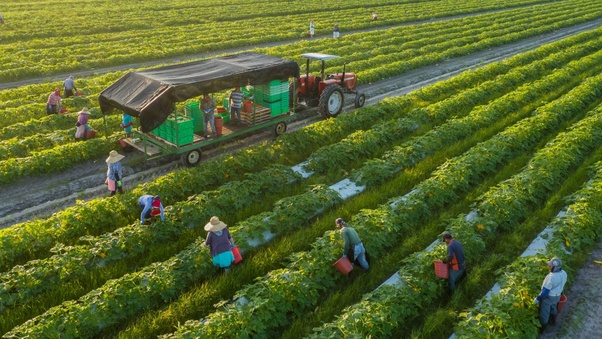Farm-centric research has both advantages and disadvantages for an operating farm
Will the... novel variety, the automated weeder, the sophisticated irrigator... function as well in the field as it does in the lab?
Farmers are frequently hosting or taking part in innovative technology demonstrations. Defra has also indicated its intention to "put farmers in the driver's seat" of R&D, with several funding sources in place to encourage farmer-tech developer collaboration.
As a result, Agri-TechE has created a one-day program to
assist participants in better comprehending the underlying concepts, aligning
expectations, and realizing the complexities of conducting trials on a commercial
farm.
Farm trials allow you to assess alternative tactics, such as whether this herb mix in a grass ley would be a better cover crop than this one. To put new technology and procedures to the test, as well as to kick the tires of revolutionary machines (literally).
However, if you are new to trials, you may have some queries, such as:
- Can farmers take part in experiments that yield useful data without taking too much time away from their farms?
- How can you convince farm employees to make trial management an exciting possibility rather than a chore?
- How reliable must an experimental study be before conclusions may be drawn?
- What questions should you ask a researcher before collaborating on a project?
Some of the factors for farm-based trials' basic concepts
Farmers, technologists, and researchers all seek to accomplish different objectives through trials, but there are certain fundamental principles that apply to all of them.
Consistent - scientific investigations require a precise technique, or protocol, to ensure that all trials are conducted in the same way. This allows you to integrate or compare data from multiple fields, herds, flocks, or farms.
Repeatable — if the experiment is repeated, the findings
must be the same to demonstrate that it was a real finding and not a 'one-off.'
Control - a plot of land or cattle that is handled
identically to the trial. The ideal situation is for the variable under study
to be the only variable that varies. On-farm, this can be tough, but sometimes
the control is only another area of the same field, or animals or birds that
haven't been treated.
Timing - processes in the study must be completed at predetermined times, such as having the same day for blood samples or crop drilling throughout trials on various farms. If this happens during a busy period on a working farm, the experiment might be postponed if other tasks are more pressing. It may be possible to hire a contractor or sequence processes ahead of time to prevent pressure points.
Documentation — all procedures must be written down. There
is equipment that can assist in recording, and it is typically automated and
will (hopefully!) collect data in the same format so that it can be compared
between trials. Another topic for the planning stage is how data is gathered.
Data analysis - the data must be useful not only to the
scientist but also to the farmer. Early on, agreeing on "how good is good
enough" is an excellent way to ensure that everyone's expectations are
aligned and no one is disappointed!




0 comments:
Post a Comment